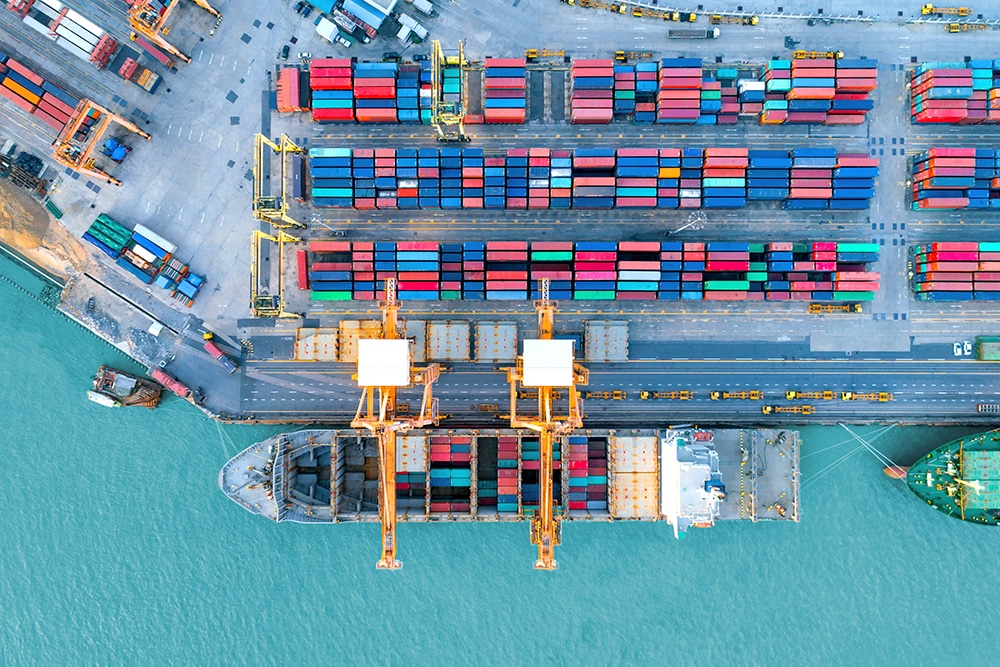Before the pandemic, many consumers showed a growing preference for ethical and environmentally friendly products, driving increased demand for responsibly sourced goods over the past decade or so. But as global lockdowns forced an increase in online shopping, consumers also became significantly more aware of their waste, carbon, and social footprint.
It’s not just their own footprint that consumers are focused on. In fact, new research commissioned by OpenText™ reveals that consumer pressure on organizations to be held more accountable for how goods are produced and sourced has intensified during the global pandemic. This trend is expected to continue as retail markets recover, highlighting the critical importance of proactively ensuring your entire supply chain operates ethically.
The growing importance of ethical sourcing
Our research considered the extent to which environmentally sustainable and socially responsible business practices matter to consumers and influence their purchasing behavior.
Overall, the results indicate that organizations need to act now on consumers’ rising expectations for ethical behavior, sustainability and transparency. In fact, 88% of global consumers responding to the survey indicated that they plan to prioritize buying from companies with ethical sourcing strategies in place, compared with 78% before the COVID-19 pandemic broke – and just 58% in Japan, 71% in both Canada and the UK and 72% in the US.
There are clear brand implications for meeting (or failing to meet) the growing demands for ethical sourcing. A growing number of consumers in each of these markets indicated they are set to pledge their brand loyalty to companies with a clear commitment to responsible sourcing – 78% in Japan, 82% in the US and UK, and 86% in Canada.
The implications go far beyond brand loyalty. According to the research, 83% of global consumers are willing to spend more on a product if they can be sure it is ethically sourced. How much more? While the number of respondents who said they would gladly pay about 10% more for a product ranged from 15% in the US to 25% in Germany, some would accept even higher price-tags: 35% of respondents in India and 21% of respondents in the US said they would pay around 50% more—that is, $15 for a product that would otherwise cost $10.
This is a critical insight for organizations that tend to view sustainability initiatives across the supply chain as a way of reducing costs, instead of protecting and generating sales. According to Chris Cunnane, research director, supply chain management, at ARC Advisory Group, “Engaging in sustainability initiatives prevents companies from having to react to a rising tide of sentiment which can crop up overnight. Getting ahead of these kinds of campaigns can be at the heart of a robust risk management program that protects future sales.”
Tightening regulatory environment
While ethical supply chains are fundamentally designed to promote ethical sourcing and procurement, their aim at a more granular level is to eliminate child and slave labor, ensure safe and hygienic working conditions, promote fair pay and working hours, support anti-bribery and anti-corruption, and promote environmental awareness and sustainability. Organizations need to ensure they align with government regulation around all these areas. With new legislation being advanced by governments across the globe to impose stricter penalties for breaches of working conditions, anti-slavery laws, etc., the regulatory environment is only set to tighten further. Beyond potential fines running into the billions of dollars, failure to comply can also result in sanctions, investor withdrawal and loss of customer confidence.
Ensuring your organization’s ethical supply chain
Beyond the regulatory regime, organizations are today under more pressure than ever from consumers to prove their ethical credentials and convince them they are conducting business in environmentally sustainable and socially responsible ways. The benefits are clear: Having an ethical supply chain can help retain brand loyalty and positively influence your top line.
Going forward, organizations that understand customer expectations around ethical supply chains and can demonstrate leadership in ethical, sustainable sourcing will build a competitive advantage as public support for such behavior continues to grow.
At the heart of building this competitive advantage is information. Organizations must be able to access data on their suppliers—and their suppliers’ suppliers—and be able to make that information accessible to partners and customers. To do this requires having the tools and technologies to build and collaborate with them and create an ethically-driven supply chain community.
OpenText™ Business Network Cloud can provide businesses with the capabilities to connect and manage their data in real-time with clear visibility into partner performance, practices, and certifications – making it easier to establish and operate an ethical supply chain.
Solutions within the Business Network Cloud include OpenText™ Trading Grid™, a unified integration platform connecting to over 1 million trading partners around the world, and serving as a centralized directory of suppliers connected to our global business network that allows procurement teams to simplify and accelerate ethical sourcing activities. Companies can use it to search our global network for suppliers or business partners that meet specific ethical sourcing criteria.
Companies can also leverage the OpenText™ IoT platform to track the end-to-end movement of shipments as they progress through the supply chain. This is important for tracking the provenance of goods and making sure parts, goods or ingredients are bought from the correct sources.
OpenText™ Magellan™, an advanced analytics and artificial intelligence solution allows companies to derive more meaningful insights as to what is happening across a supply chain, for example leveraging historical consumer buying data to predict the demand for certain ethical products in the future.
OpenText Secure Access provides supply chain partner management and ensures that business applications and associated data is protected from external security threats.
OpenText™ Active Community offers people-centric capabilities that allow companies to improve person-to-person collaboration across the supply chain—often an overlooked requirement in today’s digital business.
Visit our interactive site where you can download our white paper on the survey findings and what they mean for organizations, click here to access the survey response data by country, or visit our website to learn more about how OpenText can help your organization create more responsible and sustainable supply chains.
This research was conducted by 3Gem in April 2021. Commissioned by OpenText, 27,000 consumers were anonymously surveyed globally, across the UK, Germany, France, Spain, Italy, USA, Canada, Brazil, Japan, India, Australia and Singapore.



